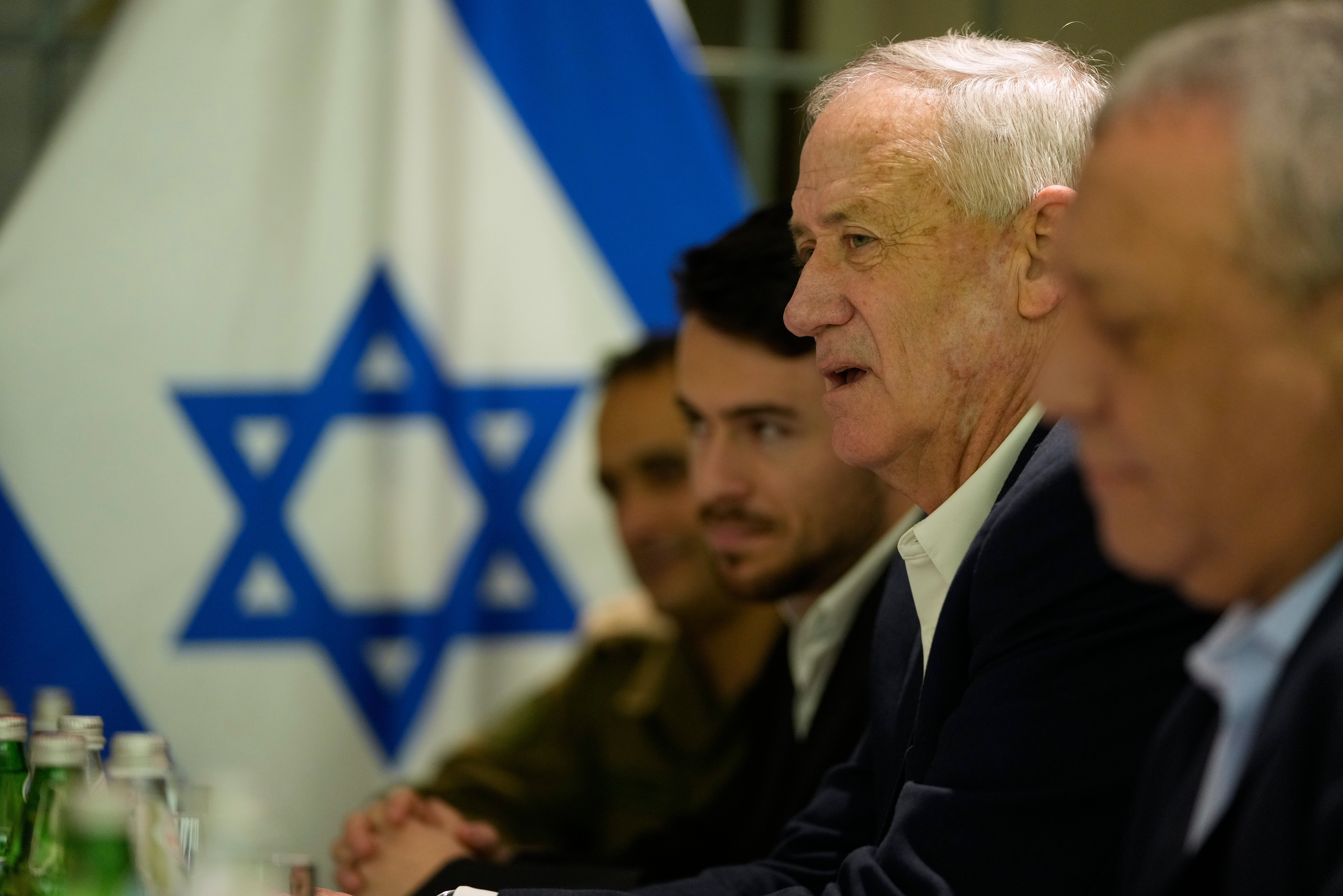The fatal flaw in Israel’s strategy? Industrial-scale warfare will not make it any safer
Editorial: With an attack on Rafah, the only certainly would be another hugely disproportionate loss of life – but from it, other consequences would flow, none of which will be in the interest of the Israeli people. The invasion must not go ahead

Aside from offering him some political “cover” and providing some semblance of national unity, one reason why Benjamin Netanyahu, the Israeli prime minister, invited his opposition rival Benny Gantz to join a small war cabinet was to ensure the government had a disciplined, single message to send to its friends and enemies alike. It has not turned out that way.
For some months, various government ministers – some outside the cabinet, but nonetheless attracting attention – have been, to put things as bluntly as they have, shooting their mouths off. Remarks about Palestinians being “human animals” and the like have strengthened the genocide case being pursued against Israel in the International Court of Justice.
Now, Mr Gantz has warned Hamas that unless Israeli and other hostages are released by Ramadan, which begins on 10 March, the ground offensive against Rafah will go ahead.
It is not quite clear if this is the settled policy of the Israeli government, though Mr Netanyhu wouldn’t demur. The prime minister says he wants to “finish the job” in Gaza, which is not exactly the same thing. More important even than that is whether such an exercise is being threatened with the acquiescence of the United States, the ultimate guarantor of Israeli security.
In any case, such an attack on Rafah means bombers, artillery, tanks, armoured bulldozers and infantry will be deployed in force against a non-functioning hospital and the largest tented refugee camp in the world, numbering some 1.4 million people. Somewhere among that throng of semi-starving civilians, around half of them children, may be Hamas terrorists and commanders, though experience tells us that they will in practice prove as evasive as ever. The only certainty in such a scenario is another hugely disproportionate loss of life but other consequences will also probably flow, and none will be in the interest of the Israeli people.
For one, there is just as much chance the Israelis will kill their own hostages, the very people they seek to save – or that Hamas will murder them in cold blood in revenge. On balance, Hamas wish to keep them alive for the purposes of leverage, but, with bitter irony, may also find that difficult to achieve while the area is levelled.
Mr Gantz’s ultimatum also calls into question once more what Israel’s war aims are. If one is the release of the hostages, and Hamas complies with this aim – does that mean the assault on Rafah is necessarily cancelled? Does it mean a ceasefire would follow? Something approaching peace again? Talks? Or would the hostages be returned to their families, as they should be, and the war would just continue everywhere including Rafah? If Hamas is, as has long been stated by the Israelis, to be “destroyed”, what does this mean?
The fact is that while Israel has an inalienable right to defend itself, it’s no longer clear, if it ever was, how the industrial-scale warfare with such huge civilian casualties pursued since the 7 October atrocities is going to make Israel safer for its people – and not create hundreds of thousands of newly radicalised recruits for Hamas or some other terrorist group. That is the fatal flaw in the Israeli strategy – and it’s not even assisting Mr Netanyahu on the domestic political scene.
Last, but increasingly dangerously, Israel is alienating old friends and creating new enemies. The US, the EU and the UK are increasingly vocal, and there is now increasing talk of recognising Palestine as a sovereign state as an early, rather than a late, step in a peace process. South Africa and Brazil, influential voices at the G20 foreign ministers’ summit in Rio de Janeiro later this week, accuse Israel of war crimes.
Israeli neighbours such as Jordan, Egypt and Saudi Arabia, who seek to maintain normalised relations, are finding that impossible. Meanwhile, Vladimir Putin is offering to host talks in Moscow between the various Palestinian factions – a clear sign the Kremlin is keen to regain the influence the Soviet Union once enjoyed in the Arab world, building on existing ties with Syria, Iran and Iraq. Such an informal alliance is not in the interests of Israel.
The fighting must stop, whatever label is attached to such a cessation. If Israel wishes to continue with its war, then the tactics need to be smarter, more proportionate, and more allied to political and diplomatic activity. Upping the ante again, as Mr Gantz has, is literally self-defeating in terms of Israel’s national interest.
Hamas has not been destroyed and it will emerge from this rubble to threaten Israel again – an appalling and unacceptable prospect. Israel has to find a better way to prosecute this war or, preferably, find a way to pursue peace. The end of this war cannot come too quickly.



Join our commenting forum
Join thought-provoking conversations, follow other Independent readers and see their replies
Comments